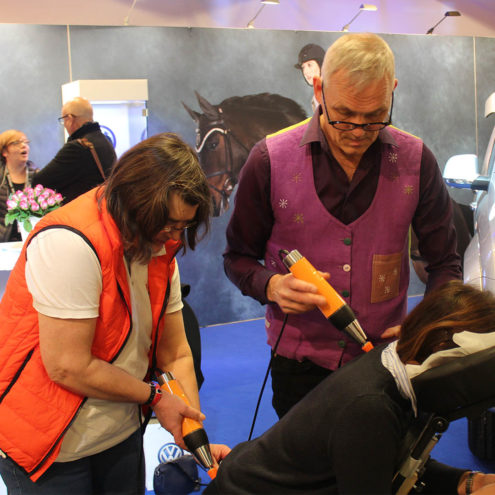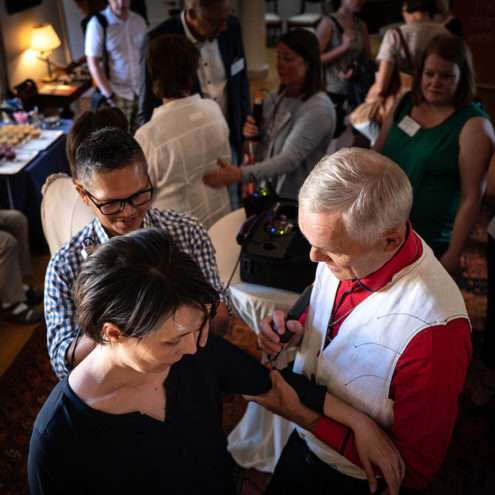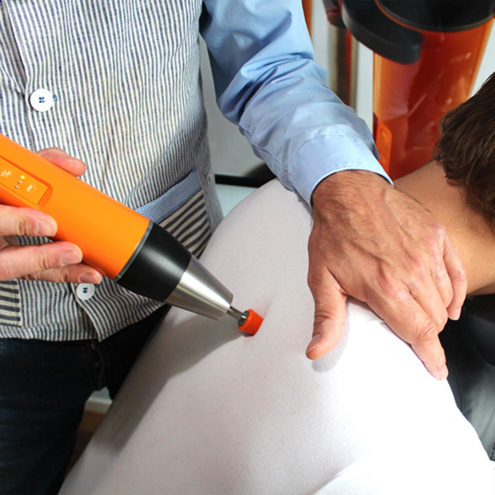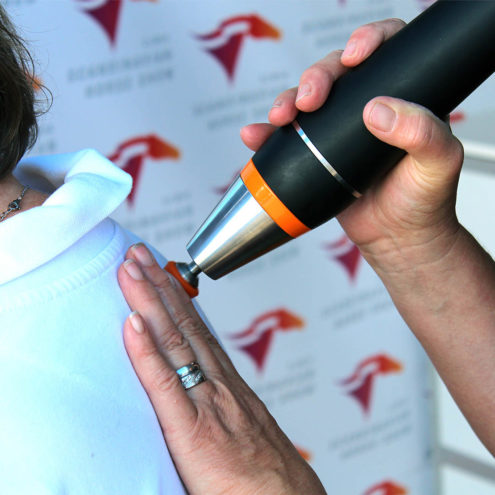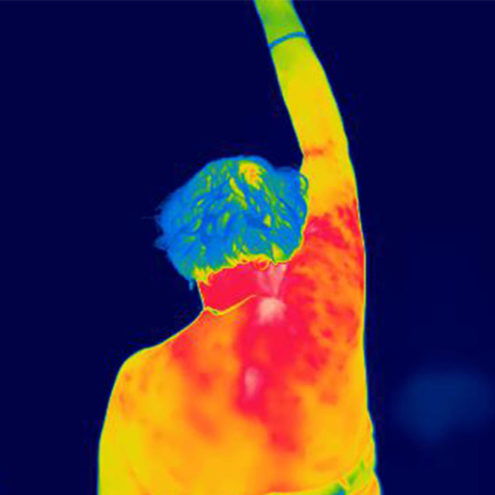REM sleep
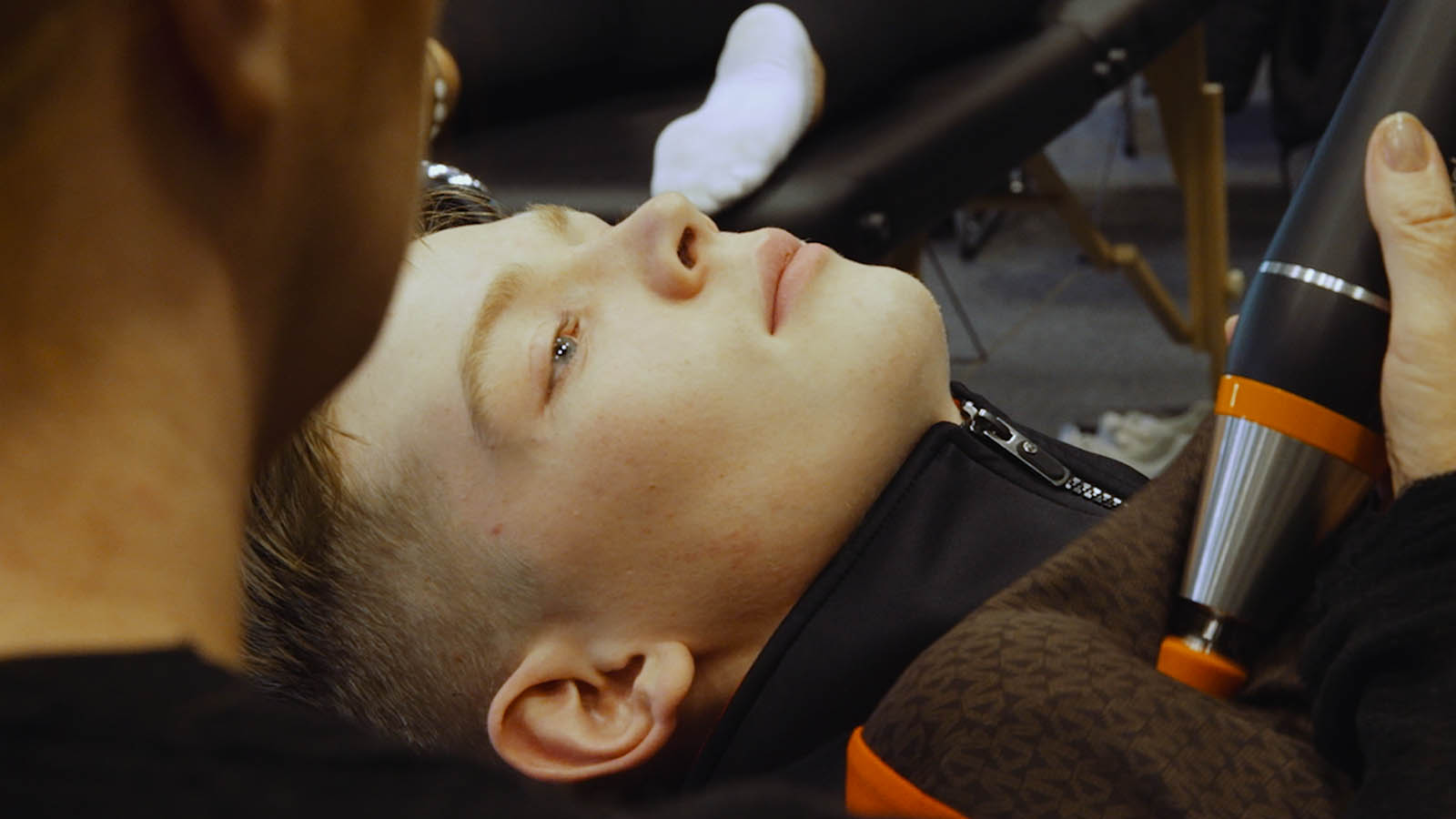
Sleep is divided into different phases, which, after the sleep phase, recur in cycles during the night. A sleep cycle lasts about 90 minutes, during which time sleep alternates between the different phases. During a normal night, there are 4-5 cycles.
The different phases are, after the falling asleep phase, normal sleep (shallow sleep), deep sleep and REM sleep. Half of the time is shallow normal sleep, one quarter deep sleep and one quarter REM sleep, which is the lightest sleep. Each cycle starts with normal sleep, then deep sleep and ends with REM. Deep sleep lasts the longest in the first cycle but disappears completely towards the end of the night, in the fourth and fifth cycles.
What is REM sleep?
REM sleep is also known as dream sleep and occurs for about a quarter of the sleep period, mostly during the second half when it is also thought to be most important. REM stands for Rapid Eye Movement and during REM sleep, dreams are common and eye movements become rapid and jerky. Heart rate, breathing rate and blood pressure rise. Brain activity is similar to a waking state and the brain is more active in the latter part of the sleep period while muscle tension is very low. You may also wake up briefly during REM sleep, but this is usually not remembered.
Symptoms for lack of REM sleep?
Lack of REM sleep makes people less resilient to stress and easily irritated. It can cause memory problems and learning difficulties.
Why is REM sleep important?
REM sleep is thought to be important for learning and for analyzing and connecting old and new knowledge with emotions. It is needed for our brains to function and for us to function in social situations and be creative. Animals also have REM sleep and it has been found that REM sleep is already present in the fetal stage so it is absolutely essential for brain development. Lack of REM sleep in fetuses can lead to brain malformations.
How do I get enough REM sleep?
In mild and moderate sleep deprivation, it is surface sleep and REM sleep that are affected first. REM sleep becomes longer in the last hours of sleep. This means that it is important to get a sufficiently long sleep period, seven to eight hours, longer for teenagers and shorter for people over 60. Too short a sleep period results in a lack of REM sleep.
Fascia and REM sleep
REM sleep is important for the whole body and fascia to stay fit. Stress levels rise from too little REM sleep, which negatively affects the fascia with high cortisol levels and high blood sugar. The fascia becomes stiff and inelastic due to so-called sugar bonds in the collagen. Flow is impaired, fluid can accumulate and you feel stiff and immobile.
Can Fascia treatment help me get more REM sleep?
Fascia treatment at FasciaClinicscan help you relax and feel more harmonious in body and mind. The treatment gets the flow going again and clears out waste products that have accumulated, perhaps due to lack of sleep and stress. A more relaxed and functioning fascia provides the conditions for a good sleep.
REM sleep – what can I do myself?
Tips for getting a long, good sleep and thus sufficient REM sleep:
Be active during the day, physical exercise makes you tired and more relaxed in the evening, but don’t exercise too late and too close to bedtime.
Unwind and do relaxation exercises and deep breathing, especially in the last hour before bedtime.
Avoid sitting at the computer or scrolling on your phone an hour before bedtime, read a book instead.
Avoid coffee and alcohol too late in the evening.
A cool, dark and quiet room is important for sleep.
Regular sleeping times are important, go to bed and get up at the same time every morning.
Exercises to get into REM sleep
Relaxation and deep breathing exercises are important for good sleep. Always breathe in through your nose when you breathe deeply and practice breathing in deeply and out slowly.
To get a good REM sleep, the sleep period needs to be long enough and undisturbed. So practicing going to bed on time to get the length of sleep period needed until you have to wake up and the same times every day helps the body.
REM sleep – frequently asked questions and answers
Is REM sleep good?
REM sleep is vital for us to function mentally.
How much REM sleep should you have?
You need about two hours of REM sleep, usually divided into four periods, and the length of REM sleep increases in the latter part of the sleep period.
What is your heart rate during REM sleep?
The heart rate increases during REM sleep.
 Search
Search







